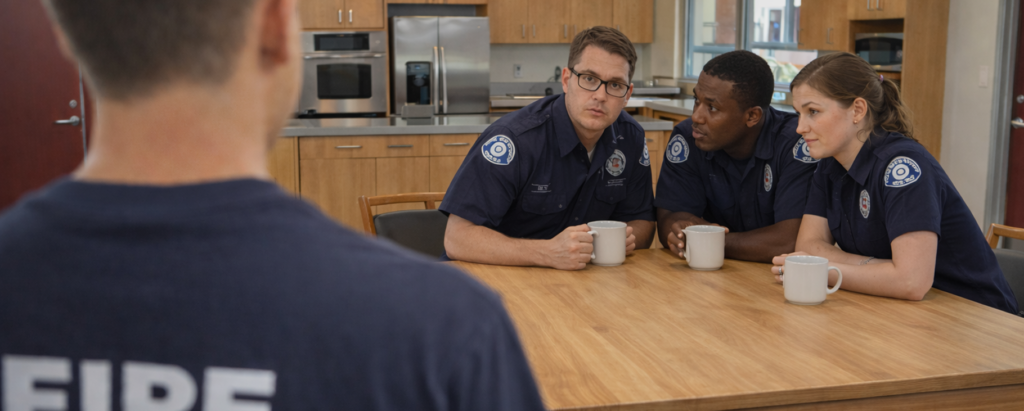Gordon Graham here and hello again! Thanks for the emails. I am so glad you are enjoying my “ramblings.” And you are right! I am a broken record (younger readers will have to look that term up) and I spend a lot of time thinking, reading, writing, and talking about this topic. Don’t ask me about sports or the stock market or “crypto currency” – on these topics I am truly an idiot – but if you want to catch my attention, talk about managing risk.
For my first 20 years on the job, I worked in the California Highway Patrol Central Los Angeles Area (one of 105 CHP offices in the state). I worked very closely with the Los Angeles Police Department, particularly the cops in their Central Traffic Division. I have some lifelong friends from those days, including Dick Studdard (the father of the Drug Recognition Expert program), Tom Paige (another DRE guru), Mike Hagen (perhaps the most knowledgeable person in the world on all things related to exotic cars) and of course motor officer Ken Osmond (Eddie Haskell in the TV show Leave It To Beaver from decades past).
All of us worked around LAPD Officer Bill Leasure, a rather lazy cop who avoided making physical arrests or writing citations or even driving a patrol car. He was “just there” and rather unremarkable. So we were all surprised when he was arrested for boat theft, which led to another investigation of him being a hit man in the mid-80s. Like everything else over the next 40 years, my memories of him faded – only to be reignited with an article last year in the LA Times, “L.A.’s dirtiest cop: A mild-mannered traffic officer who moonlighted as a hit man.”
Never in a million years would I have suspected Bill Leasure was guilty of anything other than being lazy – and in the text messages between all of us “old guys” following the publication of the article, it’s clear I wasn’t alone. We did not see that one coming!
But then there are those people who clearly broadcast trouble. The same week the LA Times published the account of Bill Leasure, media captured “daredevil” YouTuber Ben Schneider illegally walking across a slackline rigged between two Los Angeles skyscrapers. Now, I don’t have to have a lot of foresight to guess that the “accidental” death of Ben Schneider will end up in the news someday. While I don’t know exactly how he will die, it will no doubt involve his embarking on some unacceptable level of risk.
“You and your family do not have to get hurt during your next vacation – certainly not for something you could have easily seen coming.”
Those of you who know me know I am not being lazy, pulling articles from newspapers to help fill my quota of words. Most of the time I am in trouble with Madame Editor for being too long-winded! There is a point to my use of the above two articles.
I don’t think anyone saw the arrest of Leasure coming, but my guess is there are a lot of people who know that Schneider will die before his due date. Some things you can just see coming – and that is exactly what I want to cover in this article.
As we move into the fall, the holidays are not far off. Many of you will likely be traveling, taking advantage of school winter breaks to visit relatives or maybe to escape to somewhere warm for a bit. You will be doing something exciting, and you will want to create memories. My goal here is to make these memories fun to remember in the future – not “I had a terrible time on that trip” because of an injury (or death) of someone close to you.
Let’s start with where you are going. The U.S. State Department has an up-to-date listing of places where there is great danger to American citizens – so that should be something you look at. I don’t get one nickel for telling you this, but when I travel I make sure I have Global Rescue on my side (take a look at their services; they have quite a menu). My family has had their coverage since forever, including when our son was studying in South Africa and in the extremely impoverished areas near Manila. Our daughter did her graduate work in Scotland – and while that appeared to be much safer – I still wanted her to be protected.
Driving? A significant portion of the world drives on the other side of the road – and you can watch all the YouTube videos you want in preparation for this high-risk, low-frequency activity. You have not lived until you navigate a roundabout in light traffic.
Mrs. G and I honeymooned on Maui many decades ago. She absolutely wanted to see the sunrise from Mount Haleakala (whoa – nailed that without the help of spell check!) Some trivia for you: Mount Haleakala is the only national park that is “time sensitive” – huge numbers of people show up to watch the sun rise and then the park is essentially empty for the remainder of the day. As we were driving up to the top of this mountain, I noted scores of vans loaded with people and bikes on the roof. As we waited for the sun to rise, I watched the aforementioned vans offloading bicycles and people. And – how can I put this gently – when I looked at many of these people it was apparent they had not been on a bike since childhood. While Spandex is a miracle fabric, it can only disguise so much.
Hmmm … older, out-of-shape people, steep grade, wet highway surface with low coefficient of friction (Cf), crowned roadway, sharp curves, dawn lighting, tight packing of bikes, high speeds – have I made my point yet? Talking with Maui EMS personnel over the years, I learned they respond regularly to severe injuries involving these bikers – injuries that ruin vacations and lives. Again, the high-risk, low-frequency analysis would have been beneficial.
As I drive my boat up and down the west coast, I see more and more people parasailing. I am often troubled when I see a single crew member on the towing boat, multi-tasking between driving the boat, putting people up in the air, navigating the boat in traffic and paying attention to multiple high-risk activities simultaneously. But my guess is all the participants signed a waiver of liability.
Waivers of liability are a warning sign. When you are presented with a waiver of liability, your brain should be shouting, “DANGER WILL ROBINSON! DANGER!” (Again, the younger crowd will have to Google that.) PLEASE read the waiver – really READ it!
A couple of years ago, we all watched as the OceanGate Titan submersible lost communication with its mother ship and failed to resurface. The four-page waiver of liability the passengers all signed is quite telling. The waiver had the word “death” mentioned four times. And this part should have been a large hint:
“This operation will be conducted inside an experimental submersible vessel that has not been approved or certified by any regulatory body and may be constructed of materials that have not been widely used in human-occupied submersibles.”
Today’s Tips: public safety best practices: SUBSCRIBE NOW!
Well, I am way past my word allotment. I could ramble on for days on “vacation risks.” I won’t – but please do a risk assessment before you do something you will later regret. Tons of information is available online, and talking to others who have “been there, done that” might be of great value. You and your family do not have to get hurt during your next vacation – certainly not for something you could have easily seen coming.



